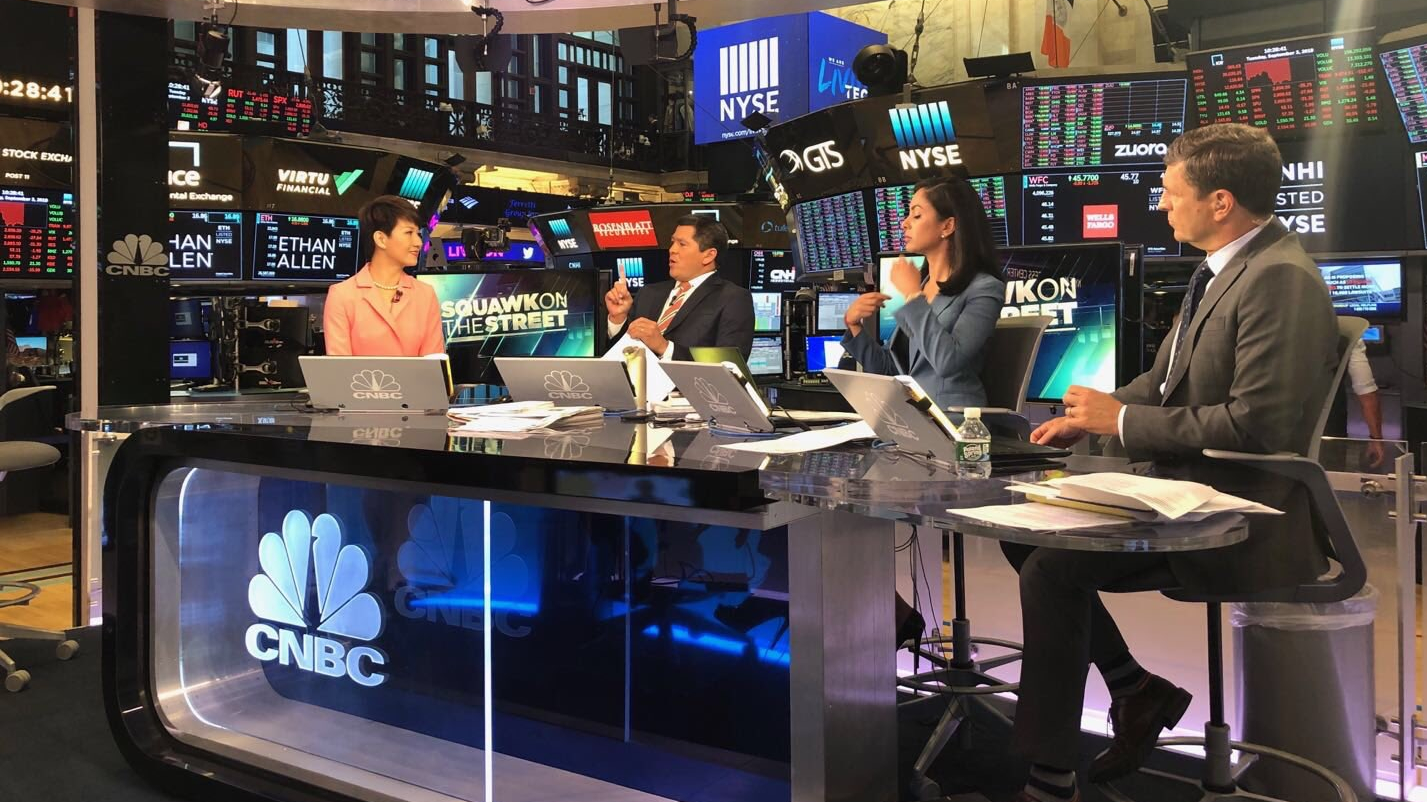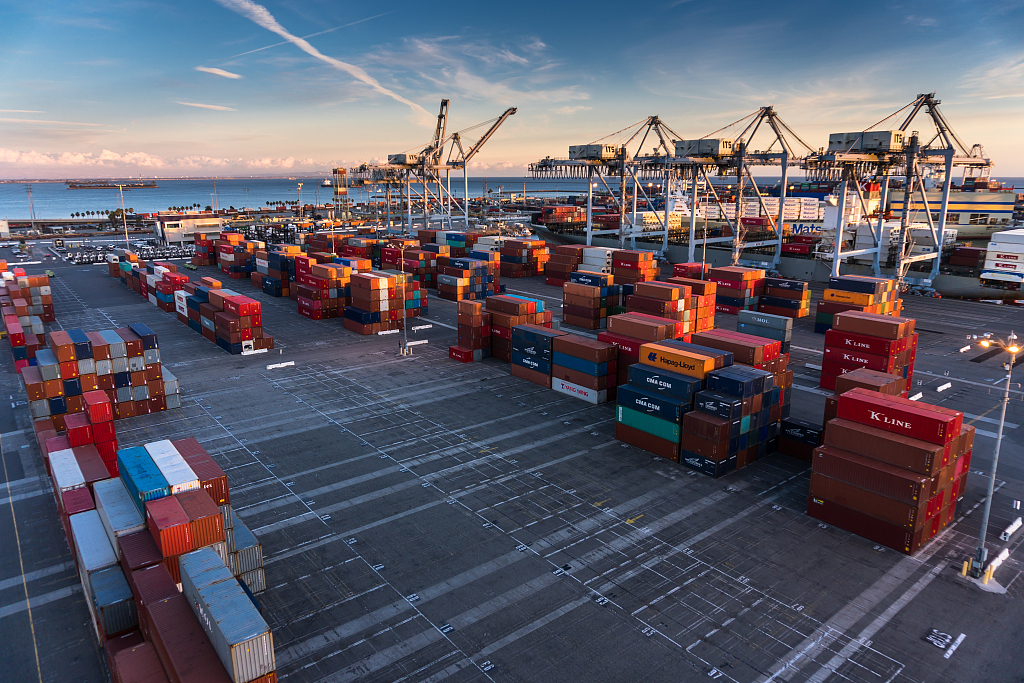

CGTN anchor Liu Xin joined CNBC's Squawk on the Street at the NYSE on Tuesday to discuss China-U.S. trade tensions.
A fresh wave of tariffs was imposed on 300 billion U.S. dollars' worth of Chinese goods on Sunday.
Meanwhile, China's retaliatory tariffs of either 5 or 10 percent on 75 billion U.S. dollars of U.S. goods also went into effect.
China responded strongly to new tariffs
Talking about China's reaction to the tariffs, Liu said China launched them "simultaneously with the U.S. tariffs. I think that's a very strong message that China is not going to stand down".
She continued, "we're going to protect our interests, our legitimate interests. But we're not going to do it over the top. Let's say we just want to send a very strong message.... this tariff escalation is hurting China as well as the United States. So, we don't want things to go even worse".
Tariffs are hurting both the Chinese and U.S. economies. China's ultimate objective is to reach a deal with the U.S., said Liu.
"President Trump's position to put additional tariffs this September 1 is not in the right direction to for talks to resume very soon".

Liu Xin (R) have a walk-about on the floor of NYSE guided by CNBC's host Seema Mody (L). /CGTN Photo
Tariffs' impact on Chinese consumers not pronounced
As for the impact of tariffs on Chinese consumption, Liu said the country's consumers are fully aware of what's happening, but their lives are continuing as normal.
"It's a very different story for different people. For ordinary consumers life goes on as normal, but workers for American manufacturers will feel the uncertainties at least."
In Liu's point of view, the key to handling the impact of tariffs lies in upgrading supply chains and being more innovative.
"Companies already started to move to places where costs are lower, to Africa as well. So, this is simple economics and we're not going to put tariffs on let's say African countries or Bangladesh or Vietnam. We have to upgrade ourselves up on the supply chain so that we can be stronger," said Liu.

Tariffs hurt both China and the U.S.. /VCG Photo.
Liu said Chinese companies are very resilient and resourceful, so they can handle the uncertainty. "Their [The Chinese companies'] profit rating has actually gone up for the month of July…You know they're small, so they're flexible. If they see there's some uncertainty here, they may immediately find something else to do."
Escalating trade war cools down U.S. tourism
When asked if Chinese tourists don't want to visit the U.S. right now given the fact that Chinese tourism numbers in the U.S. are down, Liu said Chinese people do have a lot of enthusiasm but they're not feeling very welcomed.
"I don't think that the Chinese do not want to visit America…The thing is I think they're not feeling very welcome by the kind of messages coming out of either the White House or some other officials, or that they're seeing Chinese students being suspected of being spies and stuff like that. It doesn't really help very much."
Forcing U.S. companies to share technology and IP is a myth
Some hold the view that the root of the China-U.S. trade dispute is China is forcing U.S. companies to share technology and IP when they operate inside the country.
Responding to such concerns, Liu quoted statistics from the latest report by the U.S. China Business Council, saying that "actually five percent of American companies say they have been asked to transfer technology and it was not some kind of forced technology transfer [that] they would all have to agree to it. Otherwise they would’ve dropped the deal".
Although the survey was based on a rather small sample of around one hundred companies, it does say something, she said.

China is improving its IP protection. /VCG Photo.
China is enhancing innovation and IP protection
China pays a lot of attention to enhancing innovation as a way of moving up the innovation chain.
China ranks as the highest developing economy on the world innovation index, a ranking made by the World Intellectual Property Organization (WIPO) together with Cornell University and France's INSEAD business school.
Speaking of IP protection, Liu said "China is aware of the problems that we have. We are doing a lot because China is also very much investing in innovation and IP protection because we also want to be able to innovate ourselves...we have to protect IP because otherwise people will be taking things from us as well."
China is also climbing up the innovation index, while a new law on foreign investment has been put in place to further enhance IP protection, said Liu.

Copyright © 2018 CGTN. Beijing ICP prepared NO.16065310-3
Copyright © 2018 CGTN. Beijing ICP prepared NO.16065310-3